It is 6.30am and eager parents and excited new students are lined up outside The School of St Jude gate, having been called for, what they thought was their children’s first day of school. Little do they know, it’s Uniform Day.
This day is a special day for St Jude’s. It welcomes a new wave of the selected Standard 1 and 2 students to the school; preparing them to embark on their most significant educational journey with dreams of becoming the future leaders of tomorrow.
Uniform Day is an annual celebration and a cheerful day for the new students, parents and staff at St Jude’s. On this day, students get their uniform fitted, shoe size measured and finally emerge in their new uniforms, ready to receive the gift of education provided by St Jude’s.
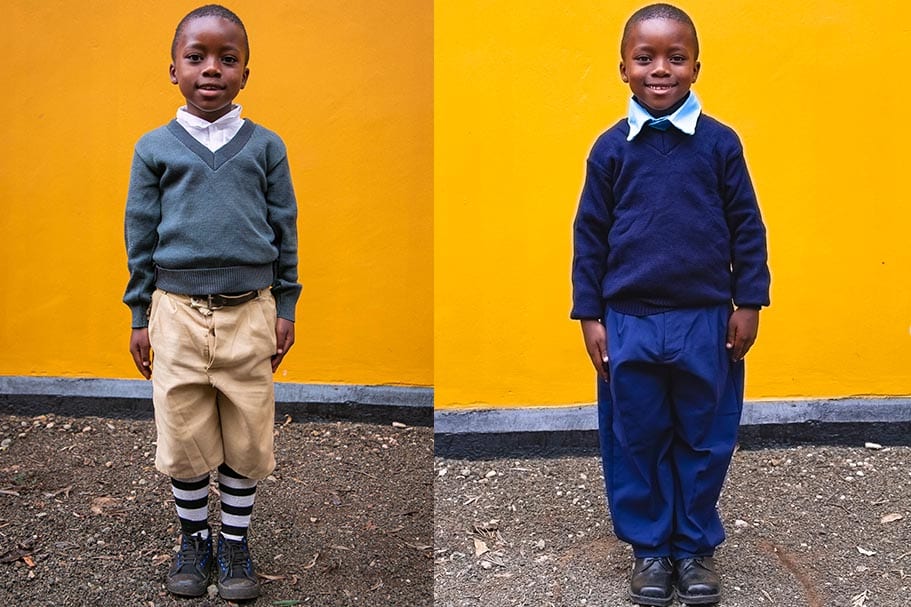
Among the excited students who couldn’t wait for the day to start was Joshua. With his bubbly and jolly personality and looking extremely smart in his new uniform, he couldn’t stop smiling and admiring his new clothes.
“I’m so happy to be getting my new uniform, and now I’m ready to start school,” Joshua jovially said.
He added, “I didn’t know about St Jude’s until my mother brought me here for Selection Day. Once I saw the school, it became my dream school, and I was praying to be selected so that I can join in.”
Describing the uniform, Joshua said, “The uniform is very nice, I love it. I’m wearing dark blue trousers, dark blue socks, black shoes, a blue shirt and a dark blue sweater. Also, my shirt has a yellow stripe on its collar, which means I’ll be in Yellow House.”
Joshua was amid over 1,000 students who came for registrations on Selection Day for Standard 1 and 2 late last year. Coming from an underprivileged background, Joshua was studying in a government school, scoring in the top of his class… a class that had more than 100 students.
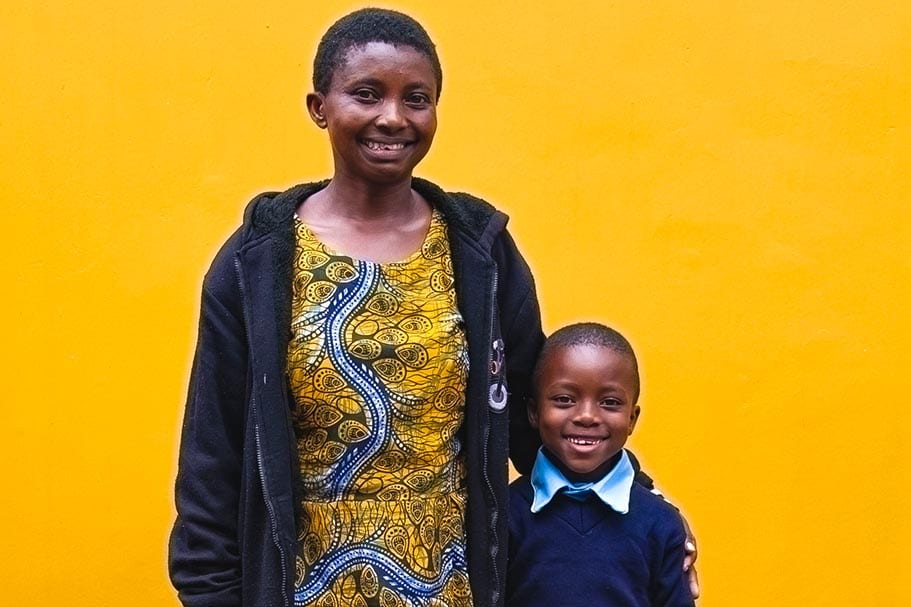
Outside the gate, parents including Lina, Joshua’s mother, was shocked and filled with tears of joy after seeing her son, coming out of the gate looking fresh in his new uniform.
Uniform Day is kept a surprise to parents whose children have qualified to join St Jude’s and get to find out about the transformation on the day that it's happening.
“Today is the happiest day of my life. I’m so proud of Joshua, and I know he’ll do us proud,” said Lina.
She added, “I have nothing to say but a big thank you to St Jude’s for selecting my son and to everything that the school is doing to help poor families, like mine. We are forever grateful.”
Uniform Day is not just a joyous day for the new students and parents; it is also a unique, emotional and an unforgettable day for St Jude’s staff.
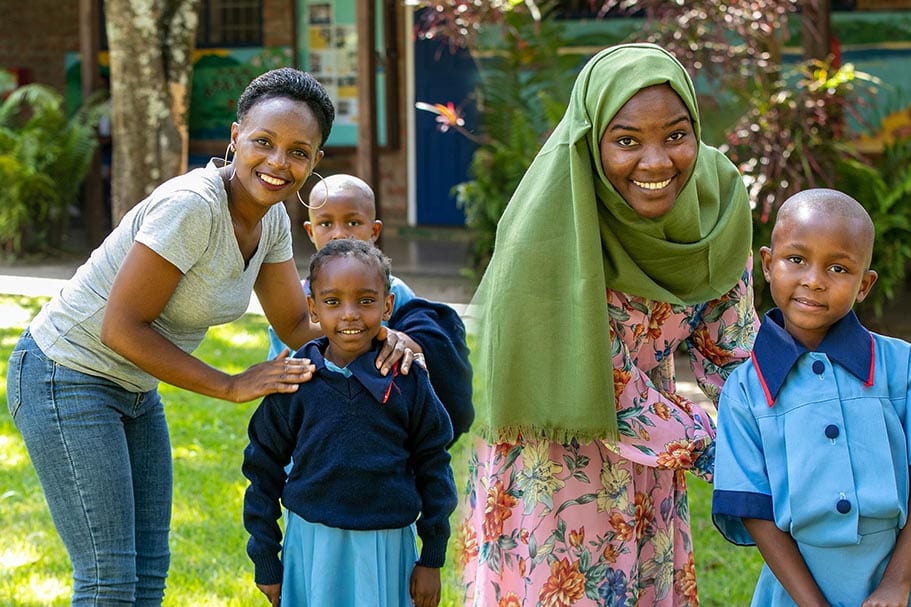
“I can’t believe I still get emotional and cry on this day. This is my tenth uniform day, but each one has a special place in my heart,” Theopista, Community Relations Assistant, said with tears welling in her eyes.
She further explained, “Doing house checks paints you a picture of where these students are coming from. So, when you see these students selected to join St Jude’s, you see so much hope in the eyes of these families, knowing that their children will be receiving the gift of education.”
For some staff, this was their first experience of Uniform Day.
“This was my first Uniform Day. I feel like a proud sister watching the young students come in and transform into their new uniforms. I tried to remember how my first day of school was, but I cannot relate,” Rehema, a Supporter Relations Officer joyfully said.
“These students’ lives were changing forever right before my eyes. It was a thrilling moment, especially when I saw some of the students whose homes I had visited during house checks. They made it! It was an honour to watch,” she added.
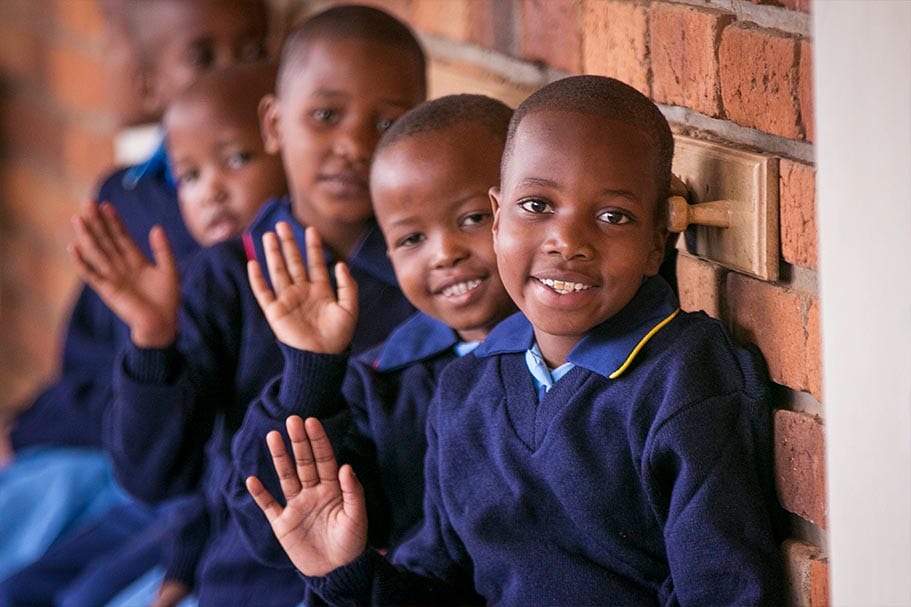
Uniform Day marks the start of a promising future for these students. You can help support them reach their full potential by sponsoring their academic scholarship. With your help, there is a brighter future!
(Some quotes used in this article have been translated from Kiswahili to English)
The School of St Jude’s motto is ‘Challenge Yourself’. The last 12 months have certainly brought that concept to the fore, as we, like the rest of the world, have adapted to rapid changes.
Incredibly, thanks to you – our loyal supporters – alongside efforts from our passionate staff, diligent students and astute school boards, we rose to the challenge. Despite the tumult of 2020, we continued fulfilling our core mission and vision: fighting poverty through education and nurturing the future moral and intellectual leaders of Tanzania.
This week, that dream officially turns 19 years old. The gates of Sisia Campus opened to its first three students on January 29 2002. For nearly two decades, The School of St Jude has stood as a shining beacon of possibility.
Last year launched on an incredible high, with the opening of St Jude’s Girls’ Secondary School in January 2020. The grounds of Sisia Campus were teeming with excited international visitors and Tanzanian officials who joined us to celebrate the special occasion.
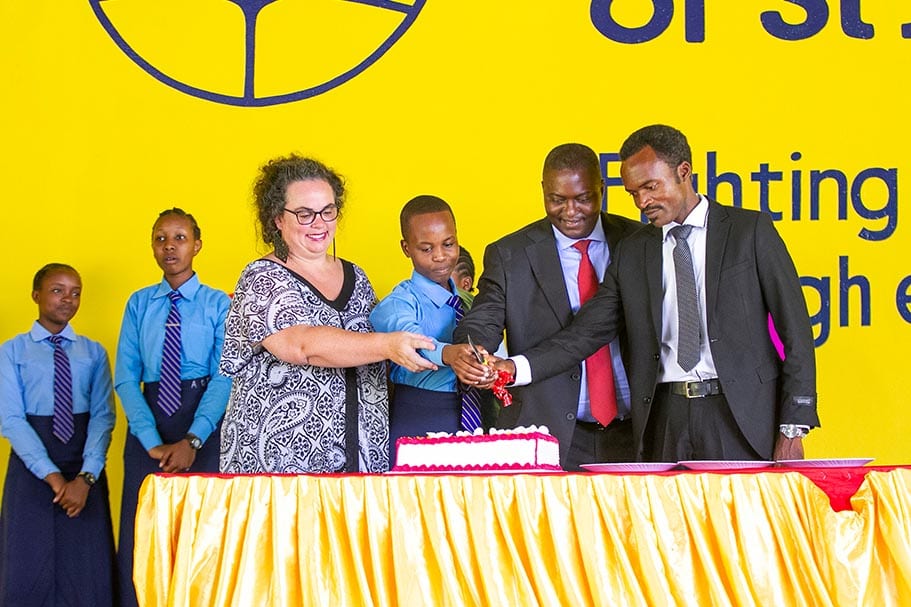
Whispers of a new virus had only just surfaced, and we certainly couldn’t have foreseen the challenges it would bring, just weeks after celebrating such a milestone!
At the same time as opening the new school, our Founding Director, Gemma Sisia, was keenly preparing for her annual promotional tour to Australia.
By mid-March, three weeks into the trip, COVID-19 had been deemed a global pandemic, forcing the promotional tour to reach a sudden (yet necessary) halt.
“It’s incredible how quickly the world changed… during our transit from Australia back to Tanzania, the country declared its first case of COVID-19. Tanzania’s government immediately enforced closure of all schools to prevent the spread of the virus,” Gemma explained.
Many schools around the world transferred their classrooms to the virtual world. Overnight, teachers became tech-experts so that students could continue learning.
St Jude’s students are among the poorest within Northern Tanzania; electricity is unaffordable for many of our families, let alone access to reliable internet. Delivering online learning content was next to impossible.
St Jude’s academic teams vowed to keep students engaged and educated during the school closure, which ended up lasting nearly three months. Four academic packs were distributed to each of our 1,800 students, allowing them to continue learning at home.
We didn’t stop there… Gemma was determined to provide extra support to St Jude’s families.
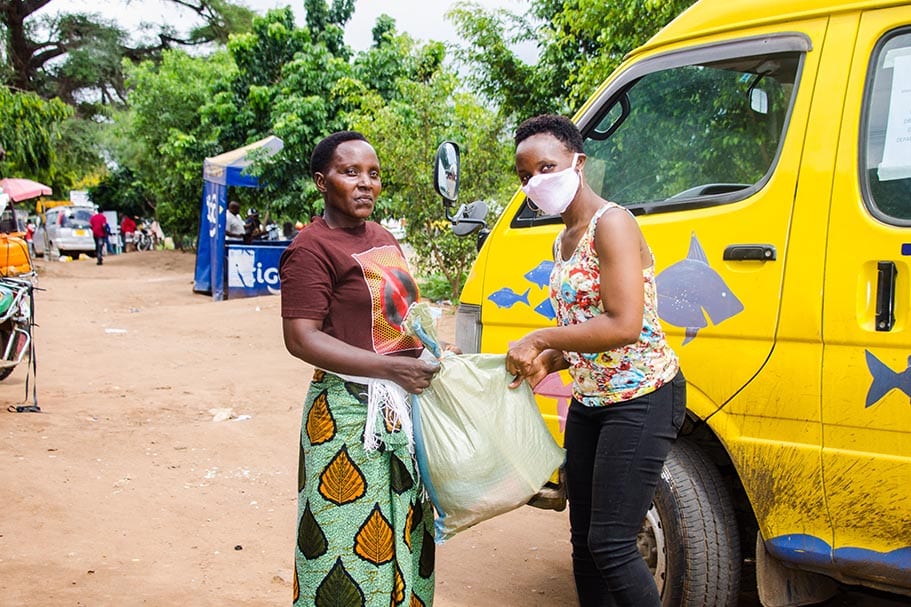
“It was unsettling to hear that families were going hungry and didn’t have access to supplies such as hand sanitiser and disinfectant. We also really missed seeing our students and wanted to remind them that St Jude’s community cares about them. Again, our brilliant supporters from around the world rallied together and we were able to distribute thousands of COVID-19 Care Packages to students, some graduates and staff, which contained essential household items,” Gemma shared.
“We did what St Jude’s does best: tackle any issue with a tremendous spirit of hope and unity,” she reflected.
Furthermore, in November, we expanded our Form 1 Student Selection intake, with testing centres established in three major regions: Arusha, Kilimanjaro and Manyara. This enabled us to select deserving students from much further afield.
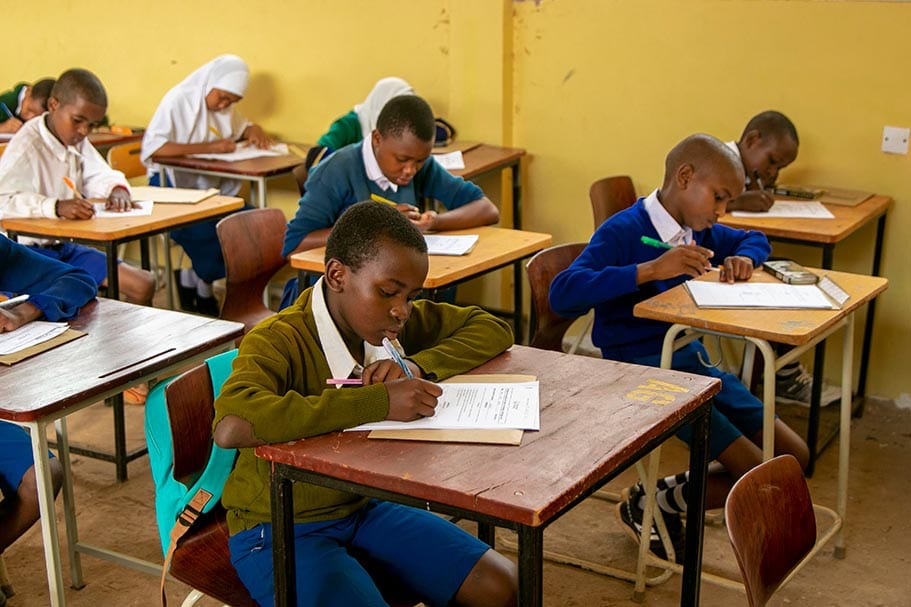
“Student Selection was such a blast! Staff worked extremely hard to make sure we selected the poorest and brightest students from these regions. Out of thousands we tested, 112 received scholarships. These students can start the new year feeling positive about opportunities they’ll enjoy at St Jude’s,” Gemma said.
The challenges of 2020 also delivered an exciting chance to embrace technology. Although phrases such as ‘social distancing’ and ‘isolation’ have recently dominated many conversations, we managed to keep connected with you.
“The boom in Zoom gifted us with amazing opportunities! Although we really miss visitors, we held special online events. Supporters from all over the world met students and key staff who deliver our shared dream of fighting poverty through education.”
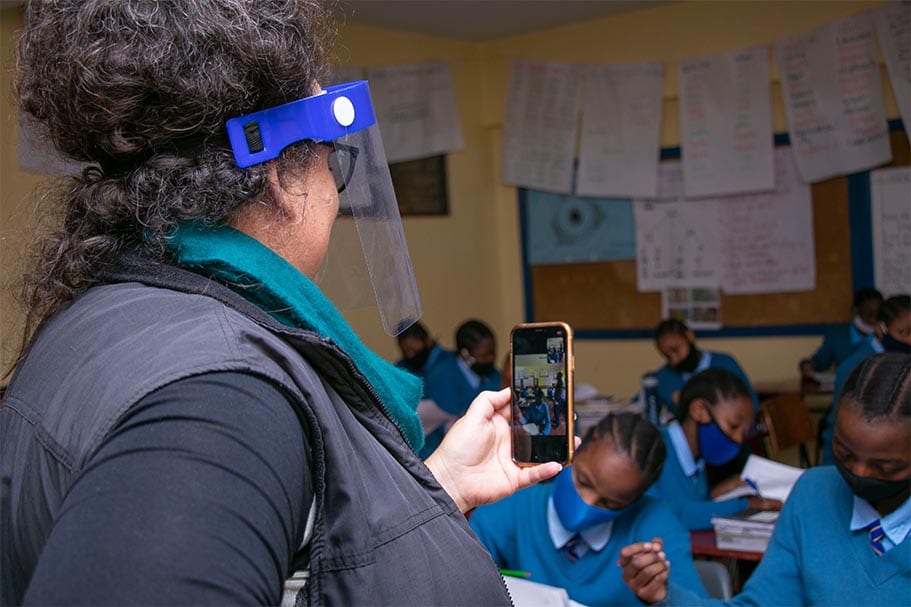
“These last 12 months have been tough. We’ve been tested in a range of ways, from the complexities of COVID-19, to the sorts of challenges that make running a large charity school hard anywhere, let alone in Africa. However, I couldn’t be prouder of our resilience and, most of all, the way we’ve come together,” Gemma beamed.
Our classrooms are built of more than brick-and-mortar. They’re built from the goodwill of thousands of people who believe that Tanzanian students, regardless of economic background, deserve high-quality education.
It poured with rain across Northern Tanzania on Saturday, November 28, 2020. Still, nothing could dampen the spirit of St Jude’s community, as they prepared for the biggest Form 1 Student Selection Day in the school’s history!
Every year, until now, Form 1 Student Selection Day has been held onsite at Sisia Campus in Arusha. Government school students and their families travel from near and far, gathering outside the blue and yellow school gates from as early as 6:00am, hoping to pass the first stage of the academic entrance tests. It’s a day full of promise for all involved.
In 2019, approximately 1,300 government school students were invited to Sisia Campus to take the academic entrance tests. In 2020, St Jude’s community challenged themselves to go even further. For the very first time, 300 staff, parent representatives and Community Service Year volunteers divided and conquered, setting up testing stations in three regions across Northern Tanzania: Arusha, Kilimanjaro and Manyara.
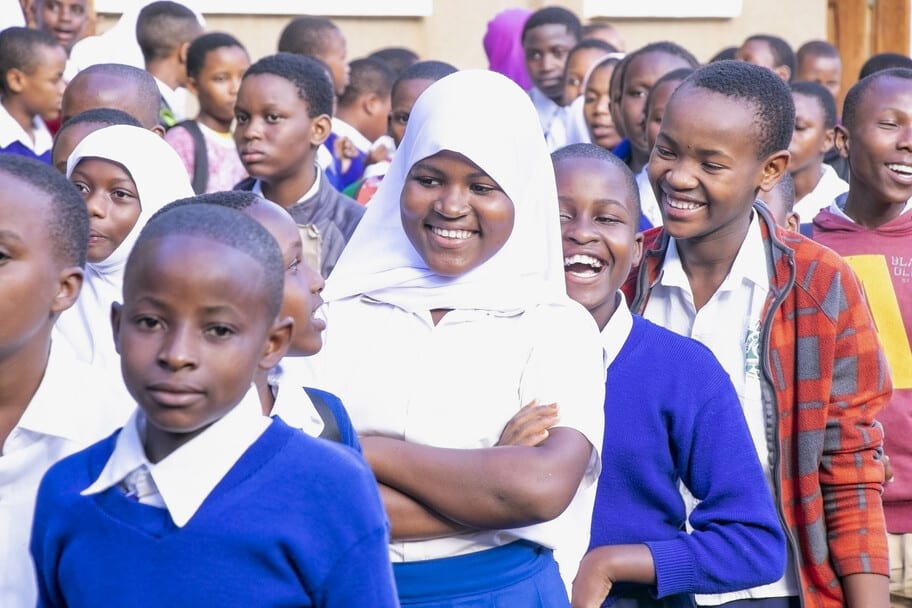
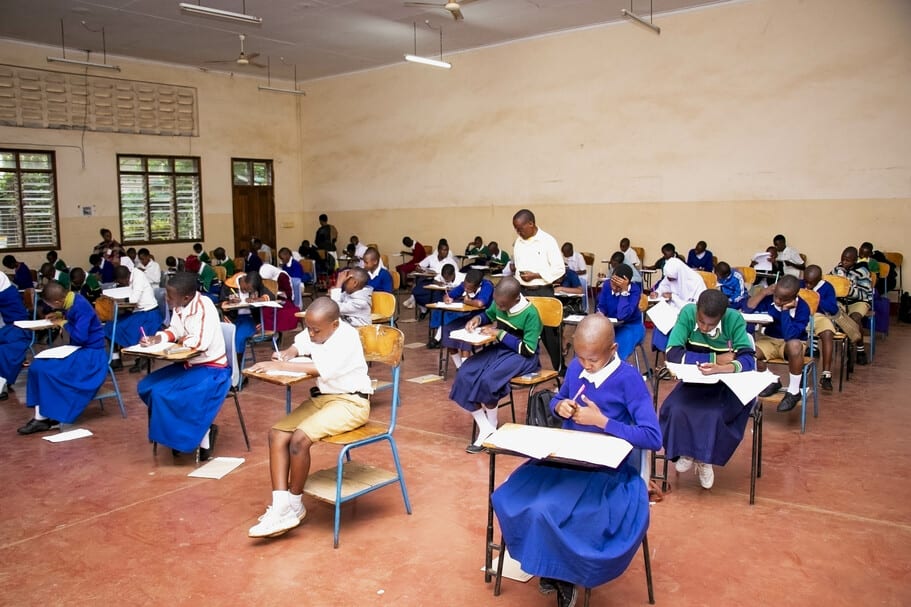
Nearly 4,000 of the top-performing Standard 7 students within the three regions were invited to sit the academic entrance tests. In total, around 2,300 government school students attended. Many of them trudged through mud for miles and crossed pot-holed roads to reach the testing centres by 7:30am, determined to succeed and earn a place at The School of St Jude.
St Jude’s Deputy Director, Angela (who was also our first volunteer teacher in 2002) was based in Manyara on Selection Day this year.
“The great thing about Form 1 Student Selection is that, because these children performed well in their Standard 7 national exams, we already know they are highly motivated with their studies. They’ve thrived in under-resourced government schools for seven years. They’ve had minimal learning resources, and most have been crammed into classrooms with anywhere from 50 to 100 other students,” Angela said.
Academic testing is just the first stage of the Student Selection process. To be eligible for a St Jude’s scholarship, students must demonstrate their academic aptitude, but their family must also be very poor.
We test and select the brightest and poorest students so that those students can lead their family, community and country to growth and prosperity. This is how we are fighting poverty through education: the core aim of St Jude’s.
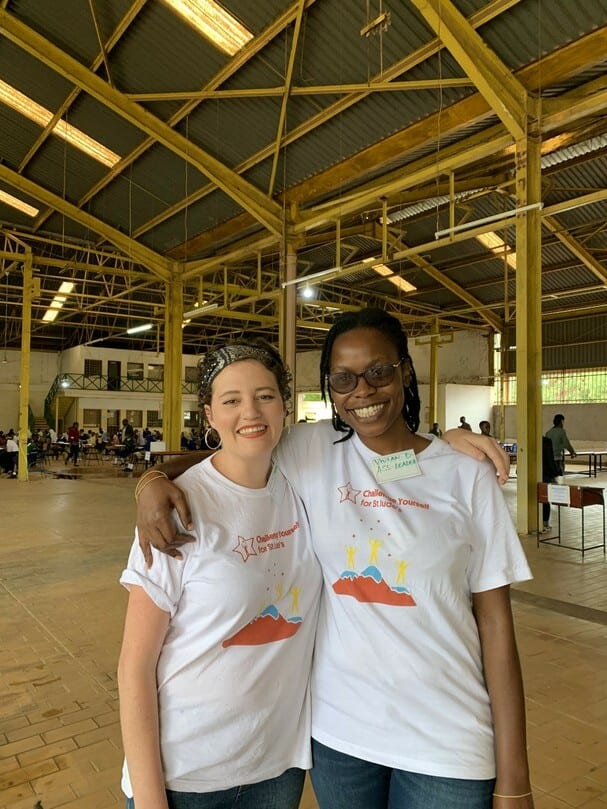
Vivian, Manager of the Beyond St Jude’s program, has worked at St Jude’s for six years and participated in 13 Student Selection days. Vivian was stationed at our selection centre in Moshi, a town near the slopes of Mount Kilimanjaro. She knows that our hopeful Form 1 applicants have quite the climb ahead.
“This Selection Day was very special. We went so far out of our comfort zone. Because of this, we will see an even bigger impact of St Jude’s across Tanzania in years to come. I was Gemma Sisia’s assistant leader at the Moshi testing centre. Our hearts were in our throats all day, and our adrenaline was pumping. We could see the great need for these students to receive a quality education,” Vivian said.

Out of more than 2,000 students who took the tests, approximately 400 have successfully progressed to the next gruelling stage of Student Selection: poverty assessments. Teams of staff will again venture across Arusha, Kilimanjaro and Manyara, interviewing students in their homes, to ensure they are well-deserving of a place at St Jude’s. There are 240 Form 1 academic scholarships on offer to students next year.
St Jude’s Founding Director, Gemma Sisia, a self-proclaimed, “challenge junkie,” was thrilled to be a part of the action.
“I’ll always remember Saturday, November 28, 2020, as one of the best days of my life,” Gemma beamed.
“The spirit and teamwork of our 300 staff, who pulled this all together, was truly phenomenal. Now, we can help more young Tanzanians and their families to overcome poverty and work their way towards a bright future,” she said.
In each selection centre, the day began with heavy rain and ended with a rainbow as staff clapped and cheered for the students who passed the first stage of selection.
After a long, anxious wait, parents warmly welcomed their child back into their arms, grinning with pride and holding their hands as they began their long journey home.
The school hopes that St Jude’s students – Tanzania’s future leaders – will pave the way to a smoother journey for themselves and their communities in years to come.
The season of giving is upon us again, and there’s no better present to pass on than the gift of education!
The School of St Jude mission is to educate the poorest and brightest students in Tanzania to fight poverty through education. From a big dream and a donation of just AU$10, the school has grown immensely over the past 18 years. This would not have been possible without the support and generosity of thousands of donors from around the world who give what they can to help St Jude’s fulfil its mission.
St Jude’s students, from primary school all the way through to higher education programs have been receiving the gift of free education from sponsors. By sponsoring the academic scholarship of a student, you can help them to lift themselves, their families and their communities out of poverty.
St Jude’s educates 1,800 students in primary and secondary and assists over 300 scholars through higher education. All have the potential to be future leaders within their community, and many dream of doing just that.
“We have three levels of sponsorship packages that cater for primary, secondary and higher education scholarships,” said Brenda, Head of Sponsor Relations.
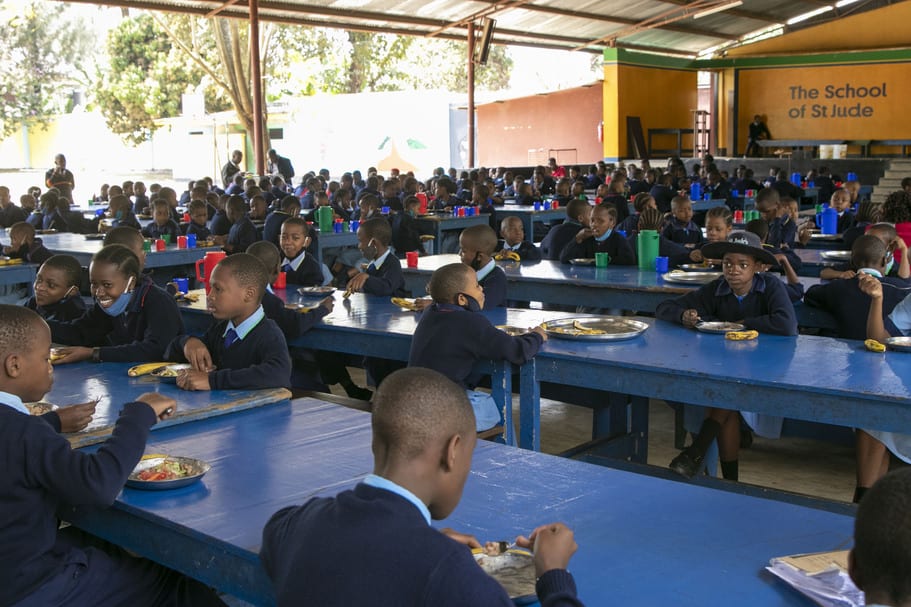
Sponsoring a student’s academic scholarship is much greater than just providing education. It also gives them educational resources, transport, school and boarding uniforms, hot, nutritious meals daily as well as a safe, clean living environment with reliable electricity and water for students in boarding… everything required for a successful education!
“Supporters can choose any three types of sponsorship packages: sole sponsorship, co-sponsorship or shared sponsorship,” Brenda explained.
“Sole sponsorship means that a person will cover the full cost of a student’s academic scholarship. Co-sponsorship covers half the cost of an academic scholarship. You can also sign up for a shared sponsorship package; this covers a part of the cost of an academic scholarship.”
Sponsorship packages extend to higher education scholarships; this means that a supporter can help a St Jude’s graduate through the Beyond St Jude’s (BSJ) program. The Beyond St Jude’s (BSJ) program was first introduced in 2015 to help our graduating Form 6 students start the next stage of their life while continuing to develop their leadership potential and community spirit. The program enables graduates to give back to their communities in an educational context as volunteers through a Community Service Year (CSY) and then provides them with the support they need to go on to access higher education.
All of the students awarded St Jude’s scholarships, show academic promise, but their families are trapped in a cycle of poverty. Without additional academic support, they may not be able to finish school.
“For any generous supporter who would like to know what it takes to be a sponsor and contribute to the quality education of a St Jude’s student or graduate, our website has all the information. Visit www.schoolofstjude.org, open the ‘Support Us’ tab, and you can select a sponsorship package of your choice. Or, you can email info@schoolofstjude.co.tz. We will be glad to assist,” Brenda assured.
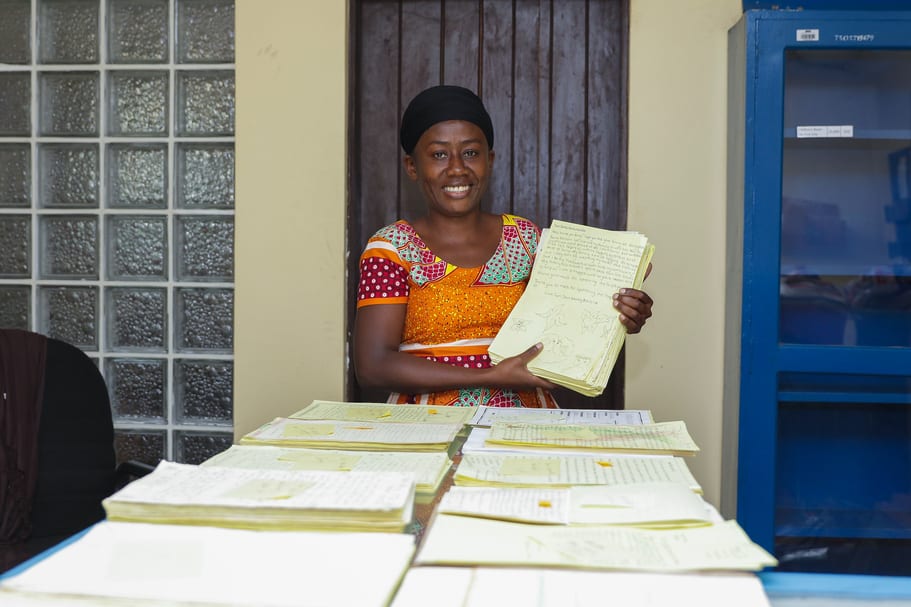
Optimal communication is an integral part of the sponsorship program; it enables sponsors and students to build a connection.
“For every student, we make sure that the sponsor gets all the information… progress reports, academic reports, awards, information about ceremonies and other updates. This communication is well-coordinated and monitored,” Brenda added.
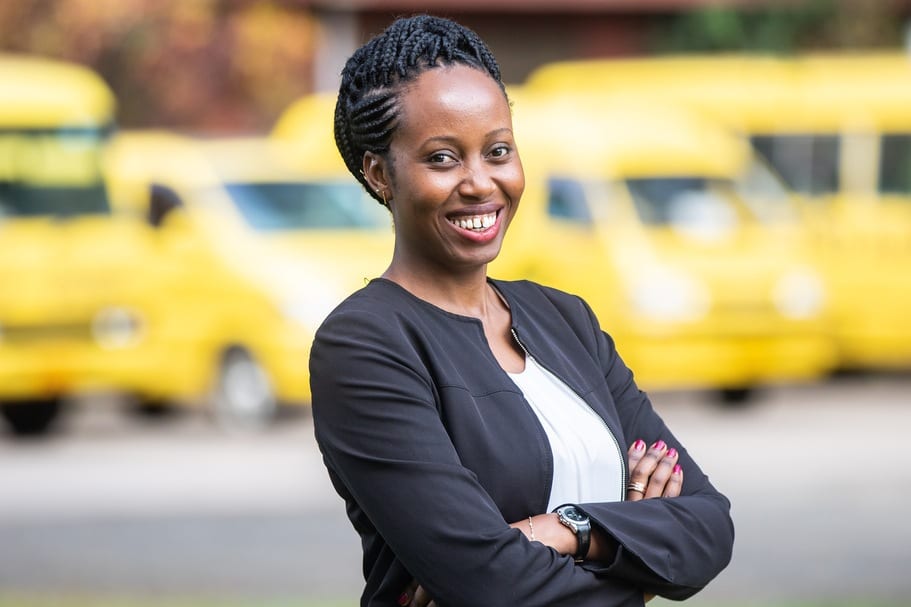
Sponsors, donors and all supporters are the backbones of St Jude’s accomplishments. Every milestone achieved by the school would not have been possible if it wasn’t for all the kind-hearted supporters that continue to form St Jude’s multi-national family.
“As we enter December, a month of giving, we would like to thank all the supporters who have dedicated themselves to making an impact. We truly appreciate their continuous support of the school and especially the students. It’s because of this blessing that The School of St Jude can continue its mission of fighting poverty through education,” Brenda said.
The School of St Jude still has a long way to go, but with the continued support from generous supporters around the world, St Jude’s will be able to enrol and educate more students every year. Give the gift of education and help to transform Tanzania’s future generations!
Laughs, smiles and chatter filled the Dining Hall at St Jude’s Girls’ Secondary School on October 10, 2020. St Jude’s farewelled the first class of O Level leavers from our girls’ secondary school. Completing Form 4, the equivalent of completing Grade 10, is an educational milestone for students in Tanzania.
Indeed, being the first girls’ secondary school Form 4 Celebration and Awards Day, it was a major milestone for The School of St Jude. St Jude’s Girls’ Secondary School opened in January 2020, enriching our whole school community and enabling free, high quality education for even more Tanzanian females.
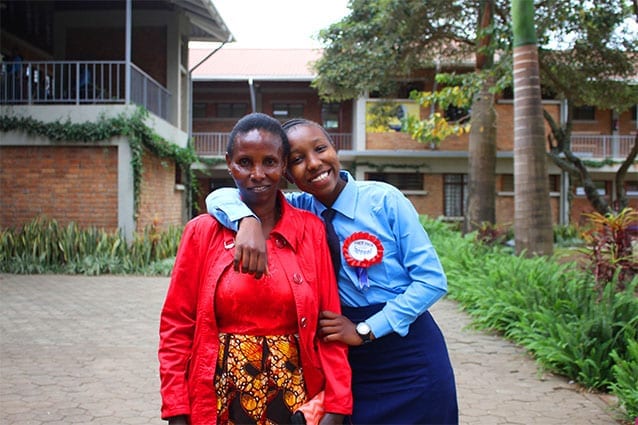
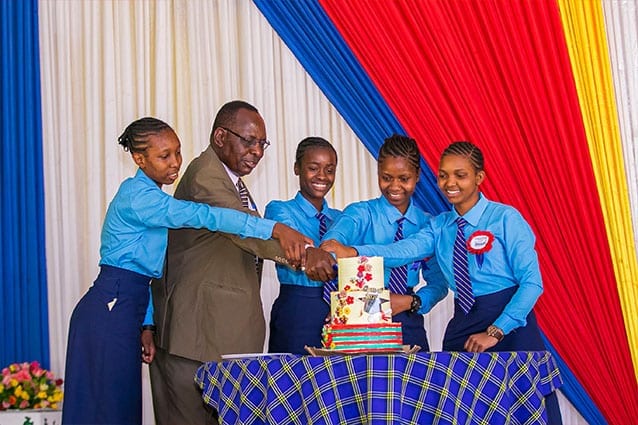
Among the grinning girls was Agness, who was thrilled to have reached this important stage of her educational journey.
“Today I’m hoping to win a few awards in Biology and also receive a Leader’s Certificate.” Agness smiled.
“After my O Level exams, I’ll use my time to volunteer. Teaching is my passion and I would like to come back and help to teach my young peers. I would like to help them with chemistry and biology.”
“Being selected at St Jude’s has been a blessing and my experience here has been amazing. I got to meet and be friends with a lot of other students. I was exposed to a lot of things such as activities and I went up the student rank and became a level coordinator for the Form 4 students,” Agness shared.
Agness’ mother was ecstatic about her daughter’s completion of Form 4. “I’m so happy... My wish for my daughter is one day for her to become a great leader.”
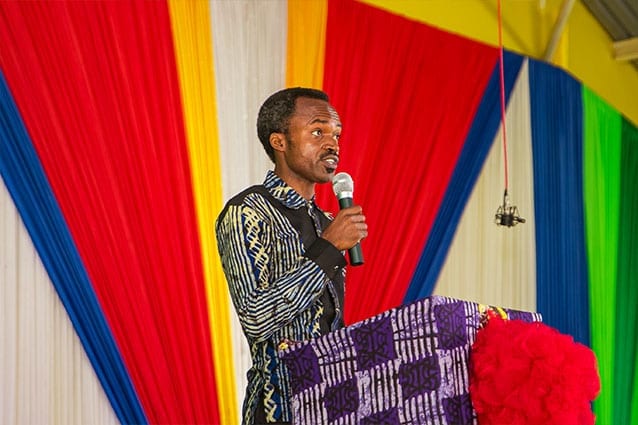
Also beaming with pride was Mr Elimringi, Headmaster for St Jude’s Girls’ Secondary School. “Today I’m so glad. It’s been a long journey to reach this day and we’ve been anticipating and dreaming about this since the school opened. The celebration is important, but we also expect and encourage our students to perform very well in their upcoming national examinations,” he said.
“Our job is to make sure we are raising our girls so that we can have very strong women leaders in this country and raise the number of students that are going to focus on science subjects.”
“We want our female students to healthily compete with male students. I would also like to help the community understand that St Jude’s gives opportunities to all students regardless of individual differences,” Elimringi reassured.
So, what’s next for our Form 4 students? Soon, they’ll sit exams. National examinations take place annually with strict supervision from the Tanzania National Board of Examinations under the Ministry of Education. These exams can determine whether a student is eligible to proceed to their next level of education; students sit these exams in Standard 4, Standard 7, Form 2, Form 4 and Form 6.
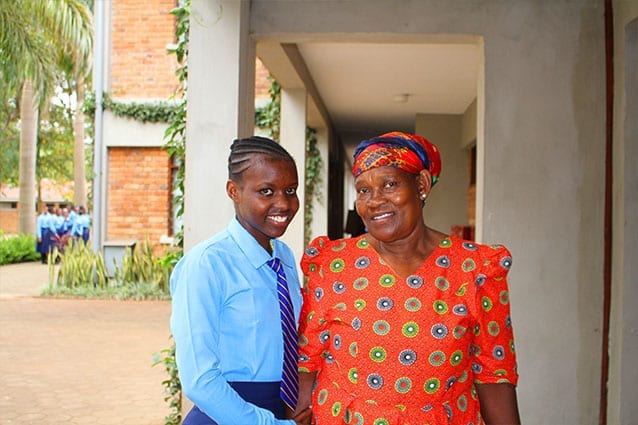
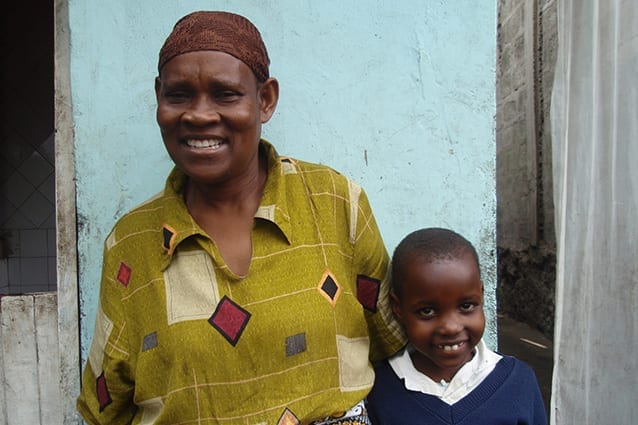
Margaret, grandmother to Hilda, one of our exceptional Form 4s, excitedly recalled Hilda’s Student Selection process – it’s still a raw memory, even though more than 10 years have passed!
“I remember the first Selection day, it was tough but I was hopeful that Hilda would get an opportunity to study at St Jude’s… but this is only the first step, she still has a long journey ahead of her.”
Hilda has chosen to study business subjects. She’s looking forward to a bright future, helping to improve her community during her study break after exams.
“I’m so excited and feeling fantastic. I will be spending my time volunteering. I would like to teach. But I will also try and get a job so I can support my family during this time,” Hilda said.
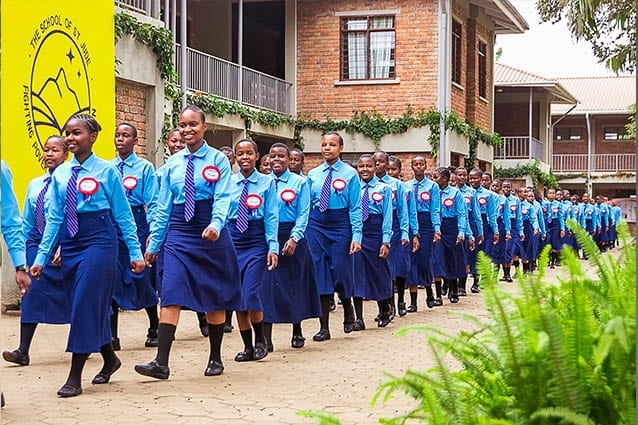
Form 4 Celebration and Awards Day is a huge step forward for our students. Completing Form 4 means they are closer to realising their dreams. For their parents and guardians, most of whom didn’t have the chance to attend secondary school, this is a major step in fighting poverty through education.
Our Form 4 male students at Smith Campus will be having their Celebration and Awards Day on November 7 this year.
Standard 5 students, 25 in total, file into the classroom. The walls are covered with posters of facts and grammatical tips.
Despite the heat outside, most of the students are wearing sweaters. This is common among St Jude’s students, who take a great deal of pride in their uniform.
Last in the classroom, behind the students, is Ms Anna. She is about to begin a Kiswahili lesson.
Ms Anna places her bag on the desk and the students stand and sing her a song in Kiswahili, which runs through different categories of nouns. Once they’ve finished, Ms Anna nods in approval.
Kiswahili is Tanzania’s official language. Because St Jude’s is a English Medium school, all subjects are taught in English except Kiswahili. This means English is the medium of communication and instruction to all students and staff at St Jude’s.
To begin the class, Ms Anna turns to the blackboard, standing straight with one hand clasped behind her back, writing in flawless cursive.
“Before we start,” says Ms Anna, “is there any preparation you’d like to go over?”
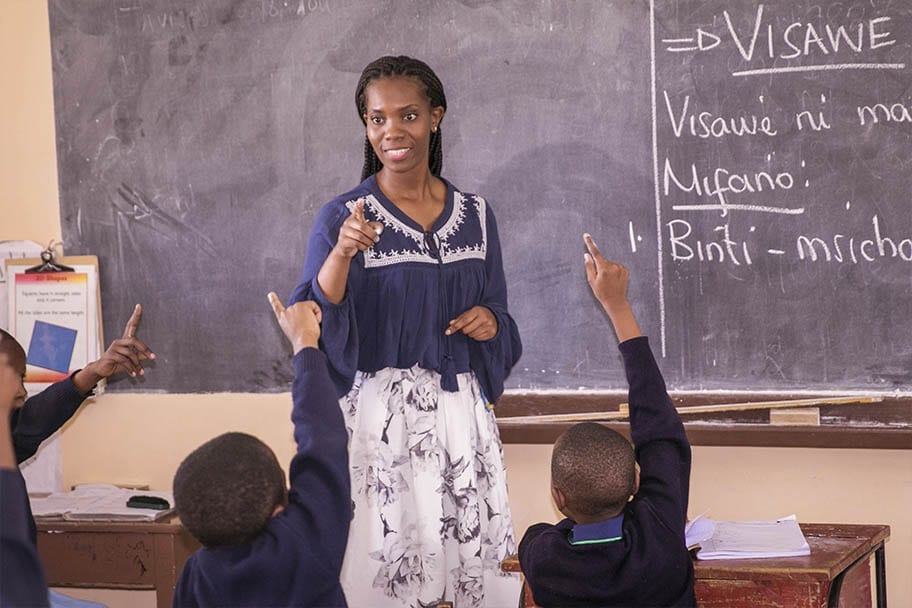
Six hands shoot up before Ms Anna has even finished asking her question. The students begin making suggestions for the day’s class, speaking with ease and confidence. The feeling in the room is that of comfort and trust.
Ms Anna places importance on building trust with her students. She enjoys working with younger students, and teaching them more than Kiswahili… she also teaches them to strive to be better. Often, she will share parables with her class to teach them life lessons about happiness, setting goals and achieving their dreams.
“I teach my students to be better than me,” she says. “Don’t just try and be like me, be better than me.”
Ms Anna takes joy and pride in teaching her students, and to encourage and inspire them, Ms Anna shares her childhood stories with her students.
“My childhood was difficult but happy,” says Ms Anna. “I have a big family with six siblings.”
“My parents were poor and I would cry, I would see my friends with cars and shoes…” Ms Anna adds.
“…But look at me now!” She triumphantly exclaims.
Unusually, for a Tanzanian family of such limited means, all six of Ms Anna’s siblings graduated high school; they would always support each other and work hard.
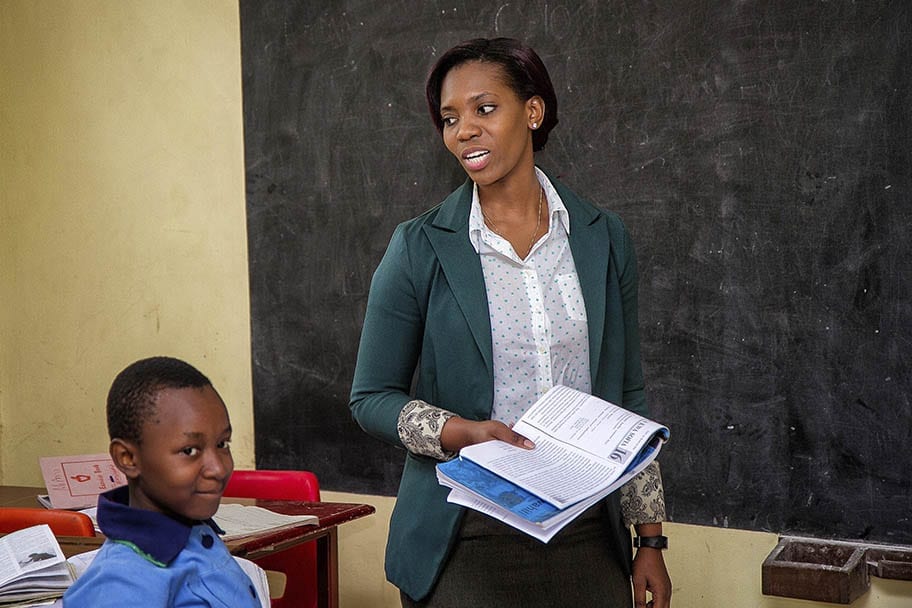
For her education, Ms Anna went to a government school. Occasionally, her friends who had the money to attend English Medium private schools would poke fun at her because of her inability to pronounce certain words in English. For years, Ms Anna took to sitting under a tree and reading English books, as well as watching movies.
“I would read, even if I couldn’t understand,” says Ms Anna. “I would read out loud to practice my pronunciation.”
By the time she was in Form 6, her final year of secondary school, she was able to speak English confidently to those same private school friends, having worked hard to make up for the shortcomings in her education.
The Kiswahili lesson continues and students approach the front of the room, writing different nouns on the blackboard. Some even clasp their hands behind their back as they write, emulating their teacher.
If a student writes a word correctly, Ms Anna will nod her head and quietly say, “ehe.” If they get it wrong, she will comically contort her face in a grimace, before inviting the class to help.
A steady line of students continues to approach the blackboard, while Ms Anna pads around the room, talking softly, never raising her voice, and smiling, thrilled to have the chance to shape her students’ outlook on education and the future.
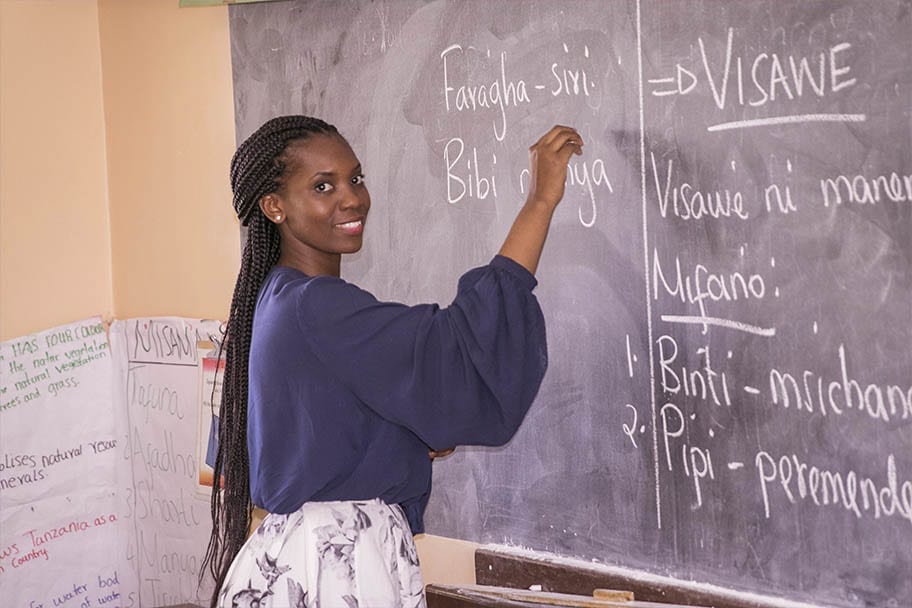
Ms Anna counts hard work and encouragement as the two most valuable lessons she learnt from her childhood and the emphasis on securing an education. She believes that the students can reach their goals and break the cycle of poverty regardless of their background.